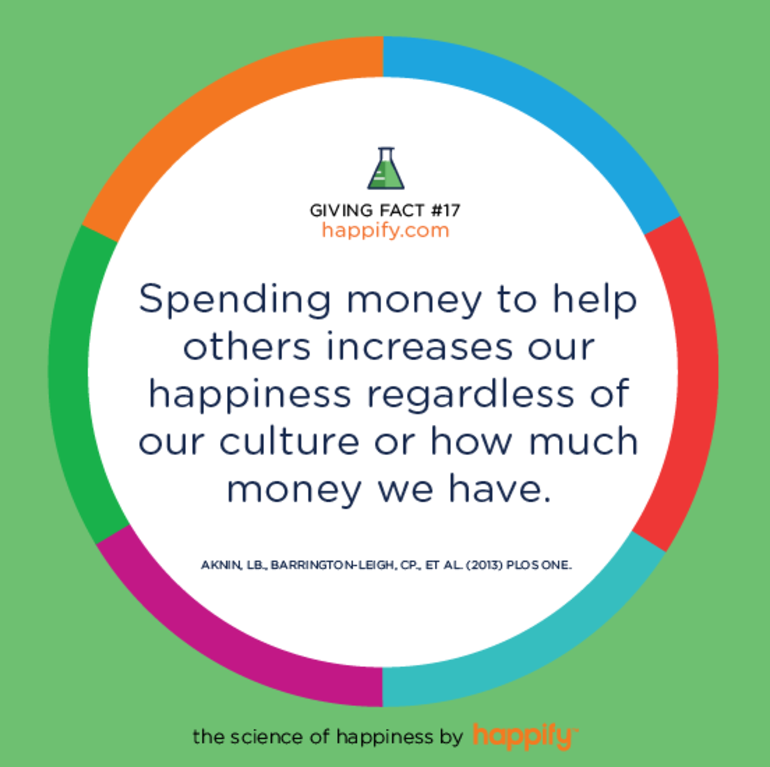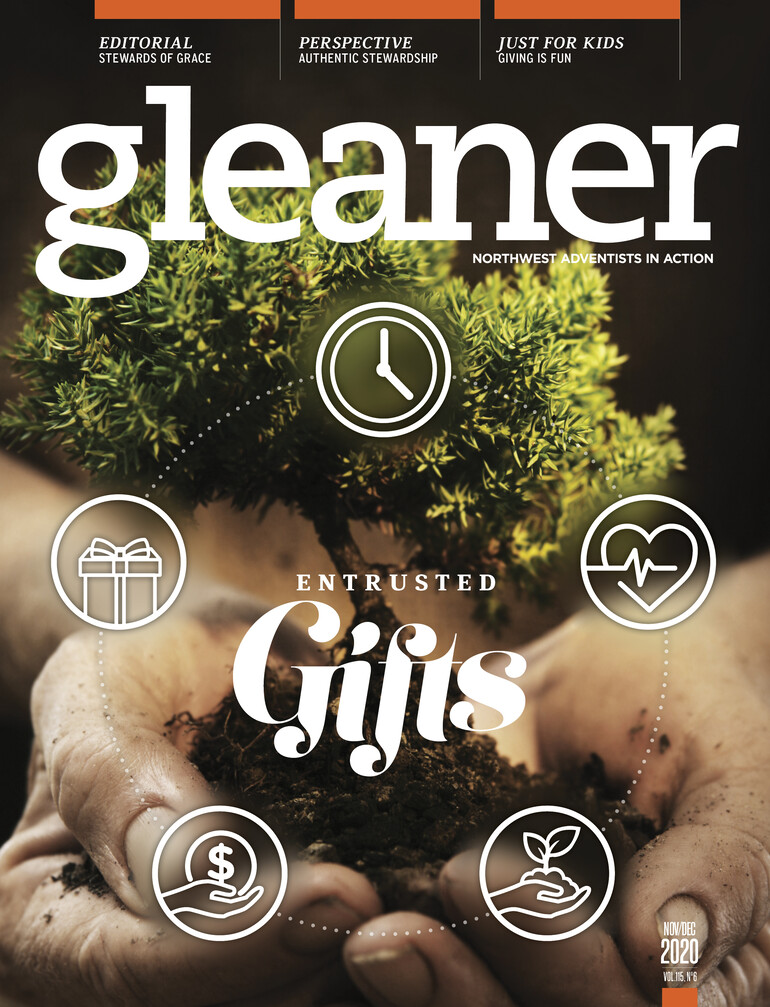“But this I say: He who sows sparingly will also reap sparingly, and he who sows bountifully will also reap bountifully.” (2 Cor. 9:6, NKJ)
‘Tis the season. Christmas holiday displays go up earlier every year in what we suspect may be attempts to stimulate the “spirit of giving” increasingly early in the season.
As it turns out, holiday giving — or any other kind of giving — isn’t just a blessing for the recipients, but actually benefits the giver.
Did you know that people who are generous are happier than their stingier counterparts?
We get pretty excited when scientific studies confirm biblical principles. Researchers at the University of Zurich (Tobler et. al) connected generosity to living a happier life. In their study, 50 volunteers were divided into two groups and were told they would be given a modest amount of money. One group was told to spend the money on themselves, and the other group was asked to give a gift of some money to someone they knew.
As each people — in both groups — was deciding how to spend the money, the researchers measured each one’s brain activity in three areas of the brain: one area where prosocial behavior and generosity are processed; another area (in the ventral striatum), which is related to happiness; and in the orbitofrontal cortex, where cost/benefits are evaluated in the decision-making processes. After the measurements were made the subjects were asked to rate their happiness before and after the experiment.
The results showed that those persons who were generous in their gifting reported being happier than before the experiment began. Also, they reported greater happiness than the control group who intended to spend the money on themselves.
As reported in Science News, the lead researcher, Philippe Tobler, said, “You don’t need to become a self-sacrificing martyr to feel happier. Just being a little more generous will suffice.” While this specific study involved the giving of money, as Christian stewards, we understand that generous giving also involves giving of one’s time, life-force energy, food or other handmade items, and the plethora of human resources, like smiles, hugs or compassionate presence.
Some of us were raised hearing the familiar phrase: “... It is more blessed to give than to receive” (Acts 20:35, NKJ). While it has taken science some time to discover that generous giving is much more than a religious platitude that is sadly, frequently misused and abused by less than ethical “religious” organizations, it would seem we were genetically wired by our altruistic Creator to enjoy tangible physiological as well as psychological benefits when we choose to live in obedience to the kingdom principle of “giving” that Jesus exemplified so beautifully.
We praise God for the faithfulness and generosity of our Hispanic constituency in their tithe and offerings as well as the immeasurable hours of volunteer ministry so many have the generously offered this year. The promise given, continues to play out “... Try me know in this, says the Lord of hosts, ‘If I will not open for you the windows of heaven and pour out for you such blessing that there will not be room enough to receive it’” (Malachi 3:10, NKJV).
It is our prayer that God will continue to receive extravagant glory as we commit to reflect heaven’s law of giving as we joyfully give, from grateful hearts ... our life energy, time, spiritual gifts and financial resources to building up the Kingdom of God. Maranatha!
Tobler, Philippe, Park, S. Q., Kahnt, T, Dogan, A., Strang, S., Fehr, E., "A Neural Link Between Generosity and Happiness." Nature Communications, 2017.













